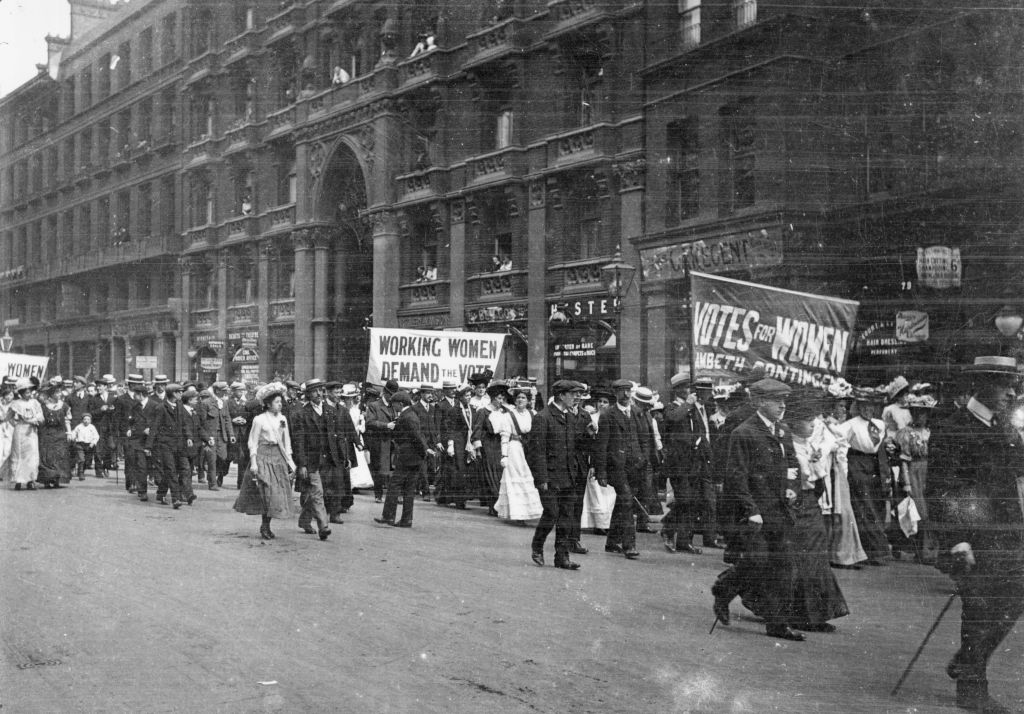6 February 1918: (some) British women get the vote
With the passing of the Fourth Reform Act on this day in 1918, certain British women over the age of 30 were given the right to vote.


Get the latest financial news, insights and expert analysis from our award-winning MoneyWeek team, to help you understand what really matters when it comes to your finances.
You are now subscribed
Your newsletter sign-up was successful
Want to add more newsletters?
Before the 19th century, women were excluded from voting, but there was no explicit ban. Ironically, it was the Great Reform Act of 1832, which expanded voting rights and reformed parliamentary boundaries, which first stated that only men could vote.
For the next three decades, the political agenda was dominated by the debate over the remaining restrictions on male voting and redrawing the political map better to reflect the growing urban population. But with the passage of the Second Reform Act in 1867, which allowed most middle-class men to vote, attention started to turn towards women's suffrage.
In the following election that year a female shop owner actually voted, although it was later voided. Three years later, the first bill to grant votes to women was introduced in Parliament, though it failed. Meanwhile, various lobby groups were set up, focused initially on normal political methods, such as parades and pressing MPs to introduce legislation.
Try 6 free issues of MoneyWeek today
Get unparalleled financial insight, analysis and expert opinion you can profit from.

Sign up to Money Morning
Don't miss the latest investment and personal finances news, market analysis, plus money-saving tips with our free twice-daily newsletter
Don't miss the latest investment and personal finances news, market analysis, plus money-saving tips with our free twice-daily newsletter
By 1903 a growing number of women were angry at the lack of progress and so formed the Women's Social and Political Union (WSPU). This group used direct action tactics, including arson, to draw attention to their position. Although divisive, this further increased the momentum for change.
The breakthrough came in 1907 when women ratepayers were allowed to vote (and stand as candidates) in local elections. By 1918 the Fourth Reform Act was passed, eliminating remaining property restrictions on male suffrage and allowing women over 30 (who met certain property qualifications) to vote. In 1928, the voting age was lowered to 21 and property qualifications were abolished.
Get the latest financial news, insights and expert analysis from our award-winning MoneyWeek team, to help you understand what really matters when it comes to your finances.

-
 8 of the best properties for sale with minstrels’ galleries
8 of the best properties for sale with minstrels’ galleriesThe best properties for sale with minstrels’ galleries – from a 15th-century house in Kent, to a four-storey house in Hampstead, comprising part of a converted, Grade II-listed former library
-
 The rare books which are selling for thousands
The rare books which are selling for thousandsRare books have been given a boost by the film Wuthering Heights. So how much are they really selling for?
-
 31 August 1957: the Federation of Malaya declares independence from the UK
31 August 1957: the Federation of Malaya declares independence from the UKFeatures On this day in 1957, after ten years of preparation, the Federation of Malaya became an independent nation.
-
 13 April 1960: the first satellite navigation system is launched
13 April 1960: the first satellite navigation system is launchedFeatures On this day in 1960, Nasa sent the Transit 1B satellite into orbit to provide positioning for the US Navy’s fleet of Polaris ballistic missile submarines.
-
 9 April 1838: National Gallery opens in Trafalgar Square
9 April 1838: National Gallery opens in Trafalgar SquareFeatures On this day in 1838, William Wilkins’ new National Gallery building in Trafalgar Square opened to the public.
-
3 March 1962: British Antarctic Territory is created
Features On this day in 1962, Britain formed the British Antarctic Territory administered from the Falkland Islands.
-
10 March 2000: the dotcom bubble peaks
Features Tech mania fanned by the dawning of the internet age inflated the dotcom bubble to maximum extent, on this day in 2000.
-
9 March 1776: Adam Smith publishes 'The Wealth of Nations'
Features On this day in 1776, Adam Smith, the “father of modern economics”, published his hugely influential book The Wealth of Nations.
-
 8 March 1817: the New York Stock Exchange is formed
8 March 1817: the New York Stock Exchange is formedFeatures On this day in 1817, a group of brokers moved out of a New York coffee house to form what would become the biggest stock exchange in the world.
-
7 March 1969: Queen Elizabeth II officially opens the Victoria Line
Features On this day in 1969, Queen Elizabeth II took only her second trip on the tube to officially open the underground’s newest line – the Victoria Line.